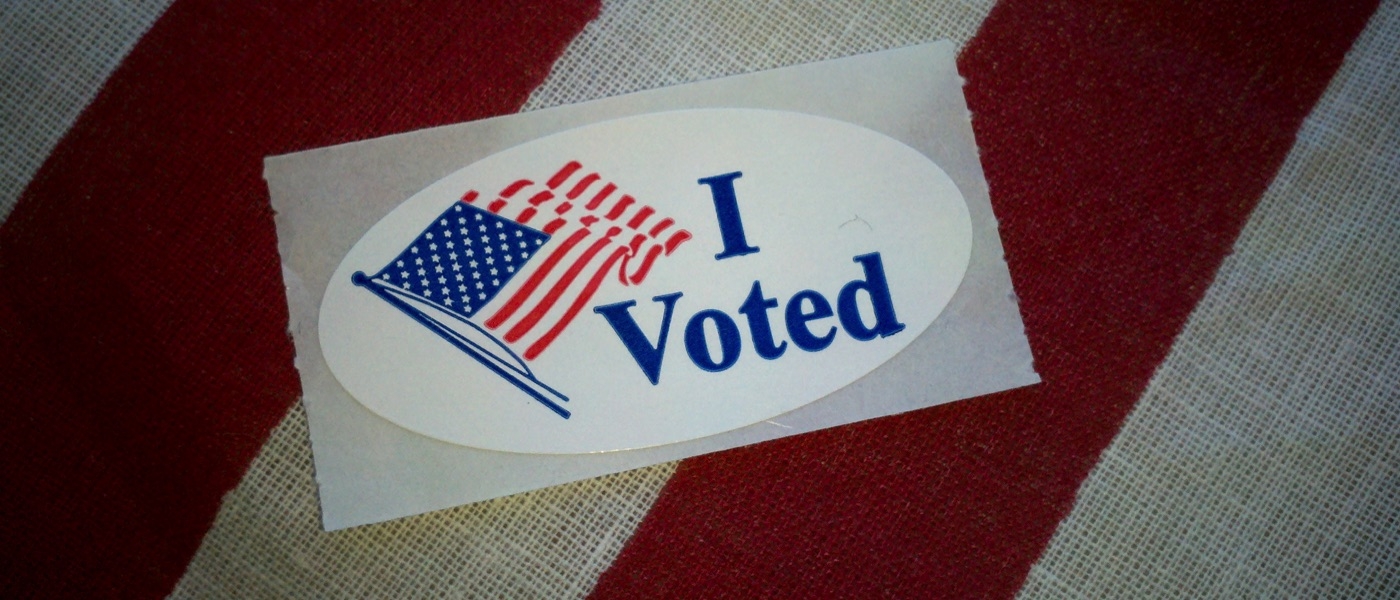For millions of voters, this election has been the most agonizing they can remember. Perhaps you’re a #FeelTheBern liberal who knows Hillary is a corrupt, pathologically lying part of the establishment you’re trying to overthrow. But now you’re thinking, “but Trump…” Or perhaps you were a #NeverTrump conservative during the GOP primaries and are still having a hard time with the idea of pulling the lever for a lifelong limousine liberal with self-control issues. But now you’re thinking, “But Hillary…” You’d like to vote your conscience, or at least register a protest vote, but you hesitate because you don’t want to help throw the election to an even more unfit candidate. What should you do? Examining the different ways your vote has an impact, both on the nation and on yourself, can help you decide.
Political Impact
#1: Your Vote Impacts Who Wins
First, and most obvious, your vote impacts who wins the election. After all, the candidate who wins the most electoral votes, which is determined by the most popular votes per state, is made the next President of the United States. If no one voted, it would be hard to determine a winner (of course, this year that might actually be a plus – I think a four-year presidential sabbatical is just what this country needs).
However, in a country our size, one vote doesn’t really have much impact on the final results. For example, in 2012, one person’s vote accounted for 0.0000000077 of the total vote (that’s eight zeros after the decimal). Of course, that’s a bit misleading, since our presidential races are not determined by the national popular vote; they are composites of 50 different state elections. I was living in the swing state of Florida in 2012 and my vote there accounted for a whopping 0.00000012 of the total vote that year (only six zeros!). However, Florida accounts for only 29 electoral votes out of 538 total votes, which is 5.4% of the total. So my vote was approximately 0.0000000065 of the total (sigh, back to eight zeros). No matter how you count it, one person’s vote has, mathematically, almost zero impact on an election.
However, votes can have an impact politically beyond determining the winner of a race.
#2: Your Vote Impacts a Candidate’s Mandate
Every candidate wants to win, but want they really want is to have a “mandate.” For example, if Hillary Clinton were to win in a landslide, a vote for her would just bolster her case that the country strongly backs her and has given her a “mandate.” This would give her political capital that can advance her agenda in the next four years. Or, conversely, if Hillary were to win by a small margin, she might be limited in her ability to govern. So you #FeelTheBern liberals might want to vote third party, knowing your vote won’t really change the final results, but could help limit Hillary’s mandate if she wins.
How much of an impact a mandate or lack of mandate has is open for debate. What’s more important than a large election victory is same-party victory in the House and Senate. A presidential candidate who wins big but faces the opposing party in the majority in Congress will have a far harder time enacting legislation than one who barely wins but has friendly faces in the majority in Congress. So it would have a greater impact for a #NeverTrump conservative to vote down-ballot for conservatives than to vote Trump in the presidential race.
#3: Your Vote Impacts the Advancement of Your Political Principles
When Ross Perot won a significant portion of the vote in 1992, the ideas he expressed – such as balancing the federal budget – gained significant traction. Almost 20 million people voted for Perot, and although he didn’t win (and didn’t even gain a single electoral vote), that large total advanced many of his pet issues. In fact, the last time the federal budget was balanced was in 1998, just a few years after Perot’s initial run for President. If Evan McMullin, for example, were to win a large number of votes (and perhaps even Utah’s electoral votes), then something similar could happen this year, whether the winner is Hillary or Trump.
#4: Your Vote Impacts the Advancement of a Third Party
Third parties have a rich history in our country, but recent history has not been kind. No third party has registered more than a blip on the radar in the past couple decades. However, voting for third-party candidates can increase that party’s influence going forward. The more votes a third party receives, the more seriously it’s taken by the public, which can lead to more votes in the future and more impact on policy decisions.
For example, in this year’s election, the Libertarian Party has a (fading) chance to receive 5% of the national vote, which would qualify it for millions of dollars in federal funds in the 2020 election. Thus, a vote for the Libertarian Party candidate could matter for the future of that party. Those who want to advance the Libertarian Party could have a direct influence on its future by voting for its candidate, Gary Johnson.
Personal Impact
Even though all the previous four factors behind a vote are important, a single vote’s political impact is still rather negligible. After all, we are talking millions and millions of voters, so one vote is a drop in the ocean. However, a vote can matter for other, more personal, reasons.
#5: Your Vote Impacts Your Self-Identification
When someone says something like, “I didn’t vote for Bush in 2004 because of the Iraq War,” it’s clear that her vote is part of her self-identification. That vote obviously didn’t impact the race – Bush won – but it still comprises part of that person’s identity. This voter can say with conviction that she was against the war in Iraq and did the one thing she could to register that opposition officially. When another war approaches, her principled stand against previous wars gives her the ability to speak more strongly against it.
There are many ways we self-identify through our voting history. Someone could boast, “I’ve voted Democrat for 50 years!” His vote represents his self-identification with the Democratic Party and what it stands for. Although we rarely completely agree with a candidate, by voting for him or her, we do consciously decide to identify with that person. This is a big reason why people can be very touchy about criticism of their voting choices: an attack on my candidate is, in a way, an attack on me. Whoever you vote for this year, it will be part of your identity for the rest of your life. As a certain unhinged Fox News personality would say, “You OWN it!”
#6: Your Vote Impacts Your Witness
Related to one’s self-identification is the idea of a person’s “witness.” Christians, of course, are familiar with the concept of “witness,” but everyone has a witness: it means the way one’s actions project his or her values. A Christian who opposes abortion but who then procures one for his girlfriend is obviously a bad witness. Likewise, a proclaimed atheist who was found to pray in secret when in distress would be too. Voting can impact one’s witness. For example, a woman who advocated against sexual assault and voted for either Bill Clinton or Donald Trump could be harming her witness. How could she counsel women to speak up about their assault if she voted for men who attacked women who made credible accusations against them?
#7: Your Vote Impacts Your Conscience
When we stand before God one day He won’t use our voting habits to determine our eternal destination, but our votes will be a part of God “bring[ing] every deed into judgment, with every secret thing, whether good or evil” (Eccl 12:14). Will we be able to look at God our Judge and say to Him, “I voted for X” with a clean conscience? Or will we have justifications for our vote? “The other candidate was terrible!” “I didn’t know he was like that (although I would’ve if I’d bothered to look).” “I had to vote for my party!” Considering how little political impact a vote has, perhaps it’s best to just ask, “Can I really look myself in the mirror if I vote for this candidate?”
Ultimately our vote has an impact in many ways. In a very small way, it impacts the country politically. In a very big way, it impacts each of us individually. When you go to the voting booth, keep all the impacts of your vote in mind as you make your decision.





